A heated chair and dye made from heavy metal contamination feature in this roundup of six key trends from Dutch Design Week.
Taking over Eindhoven from 19 to 27 October, the festival is billed as the “largest design event in northern Europe” and is perhaps the most significant platform for emerging designers on the continent.
In projects by more than 2,600 designers set across some 120 venues, Dezeen’s design editor Jennifer Hahn found plenty of innovative and unorthodox ideas around sustainability and society.
Read on for the six key trends to know from this year’s Dutch Design Week.
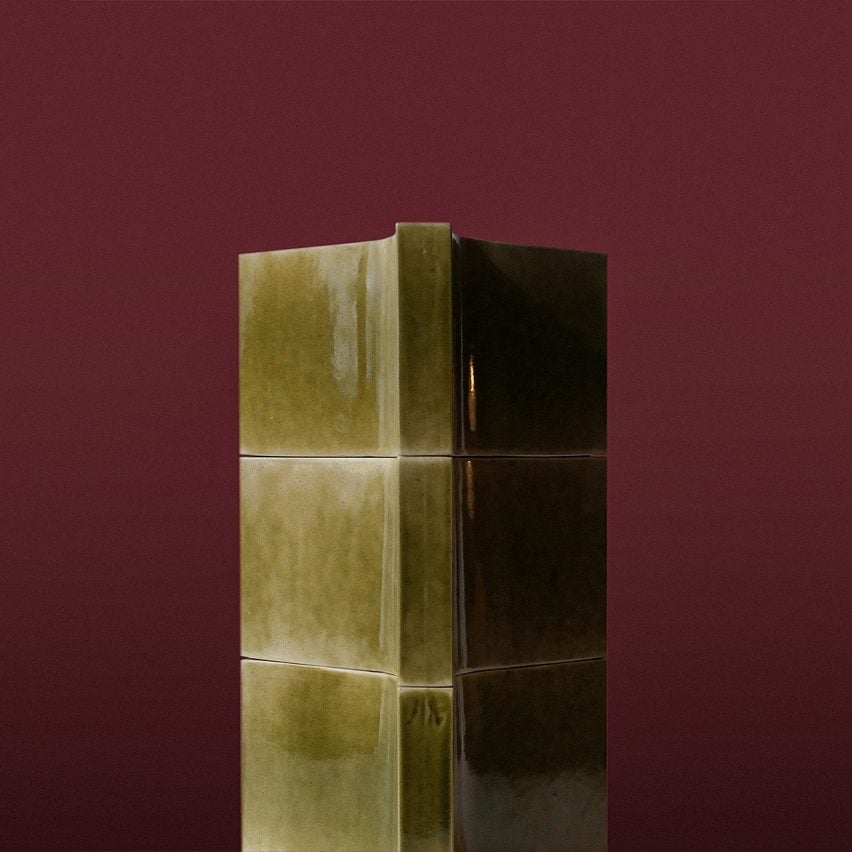
Decentralised heating
As Europe claws its way out of an energy crisis, heating continues to prove a hot-button issue for designers who are developing decentralised solutions to keep people warm without turning on their radiators.
At the Design Academy Eindhoven (DAE) graduation show, Jade Fritsch presented a heated chair made from materials like sand that store warmth even when unplugged (top image) while Karolina Borucka showcased a low-tech modular textile system designed for insulating both the body and the home.
Similarly, Swedish designer Ludvig Karlsson created infrared heating panels that double as sculptural room dividers (above), on show at the Klokgebouw alongside a solar-powered blanket by London-based Mireille Steinhage.
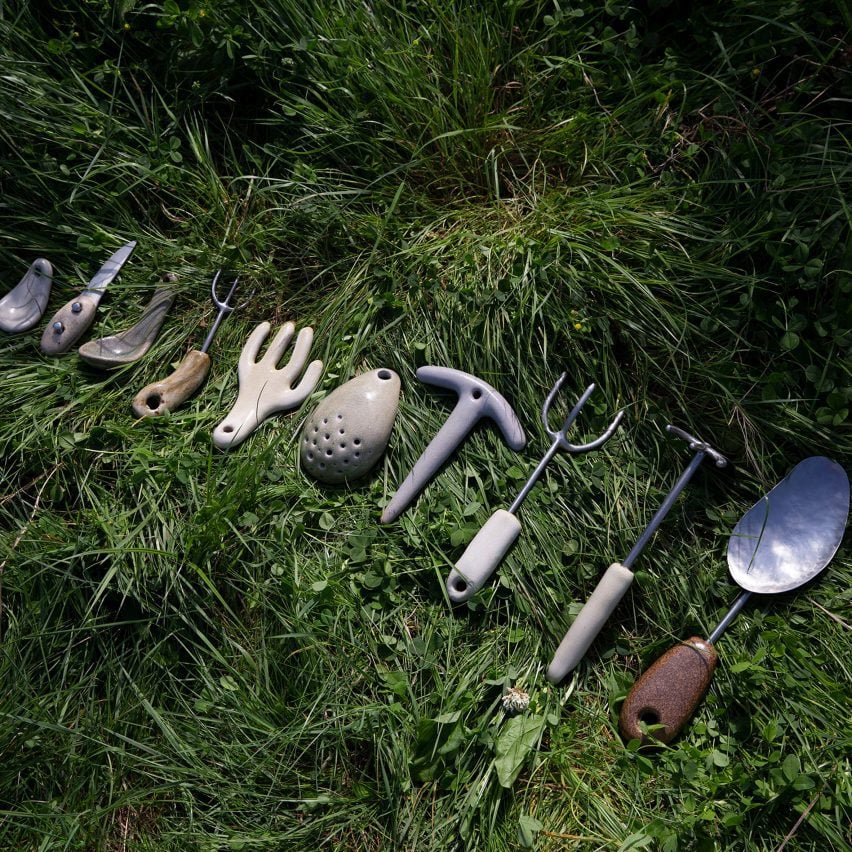
Pollution revolution
Designers at the frontier of regenerative design are increasingly going beyond biomaterials to make products out of polluted natural materials, incentivising the rehabilitation of the ecosystems from which they were sourced.
The water of Eindhoven’s river Dommel, contaminated with runoff from textile and leather factories, was used to dye a tapestry by designers Steffie de Gaetano and Giulia Pompilj, on show as part of an exhibition at the Van Abbemuseum.
And Dutch designer Marte Mei created a ceramic glaze from the ash of plants that had been planted in Amsterdam’s De Ceuvel park to extract heavy metals from the soil in a process known as phytoextraction.
Mei then used this glaze to create a collection of ceramic gardening tools (above) that will be used to maintain the same park from which they were born.
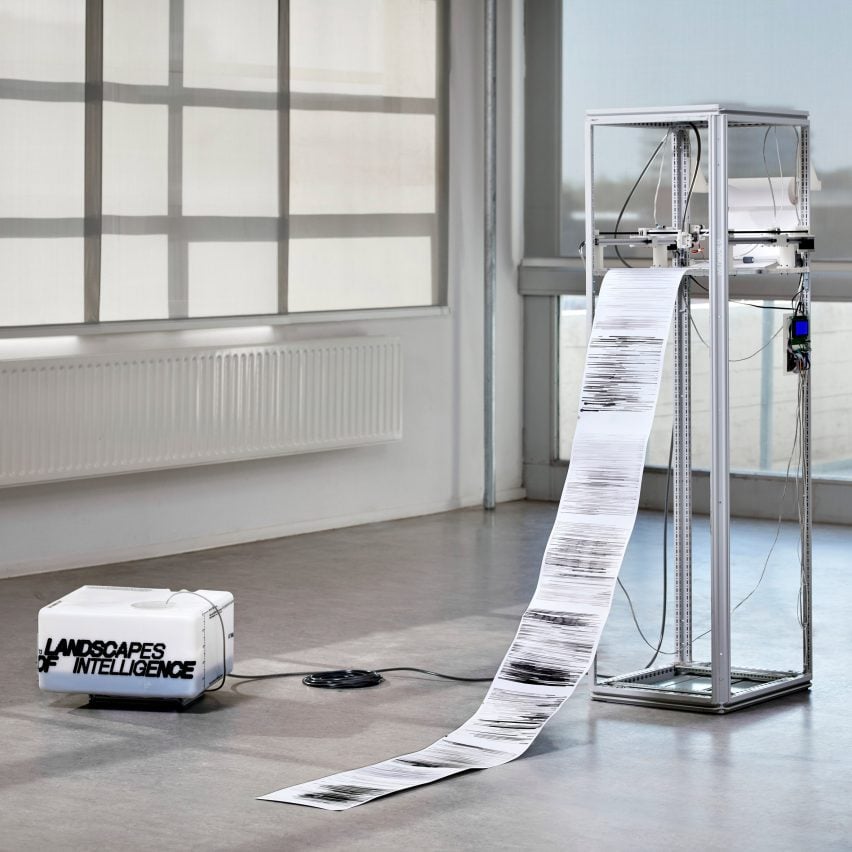
The dark side of AI
While Dutch Design Week 2023 saw several projects explore the possibilities of generative artificial intelligence (AI), designers were decidedly more critical of the technology this year.
With mounting reports that tech companies are jeopardising their climate targets due to emissions from AI data centres, German designer Elena Dagg created a plotter (above) that draws lines using the amount of water needed to generate one AI image.
Fellow DAE graduate Elena Zaghis looked instead at the technology’s ethical implications, showcasing how Chat GPT and Midjourney can be used to generate fake court transcripts and visual evidence for legal cases.
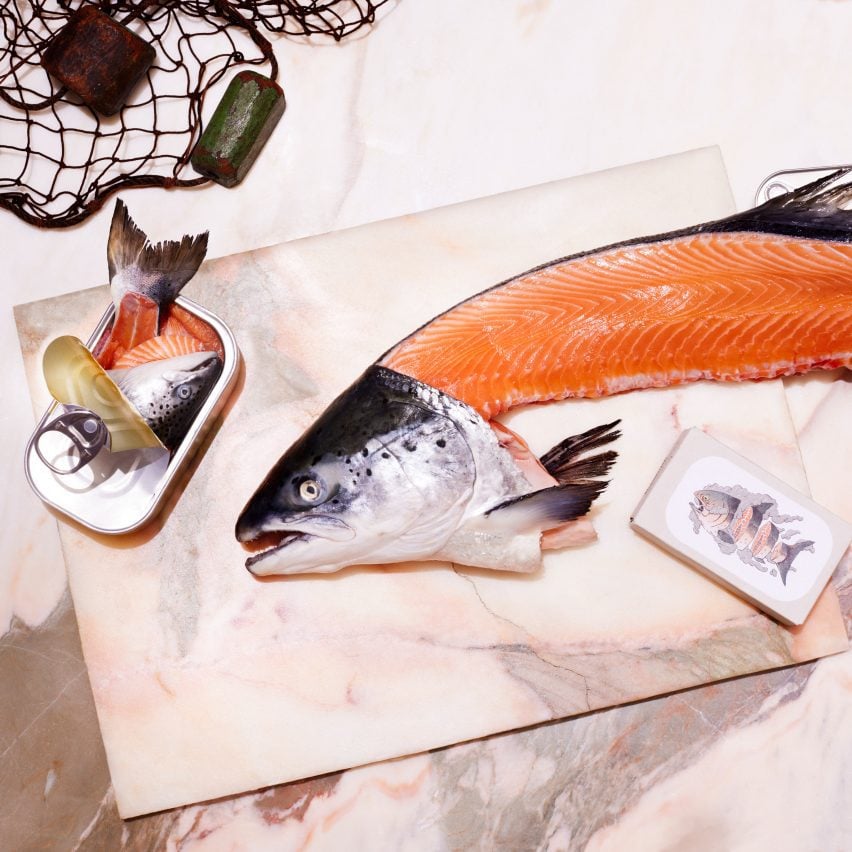
Ideas to chew on
Products weren’t the only thing on the menu at Dutch Design Week, as designers used entire multi-course dinners to communicate ideas about everything from biodiversity loss and local production to cultural appropriation.
Design studio Atelier NL collaborated with the “nature-inclusive farm” Vaderland to serve a meal of locally grown ingredients on tableware made from locally sourced clay, excavated in the process of widening the Maas river.
Under the title The Fish Knows Everything, another dinner dished up four courses made from four different invasive and endangered fish species to explore how they could be consumed responsibly (above).
Elsewhere, DAE graduate Hsin Min Chan commissioned five expat designers to create food designs based on the overlooked influence of their cultures on Dutch cuisine.
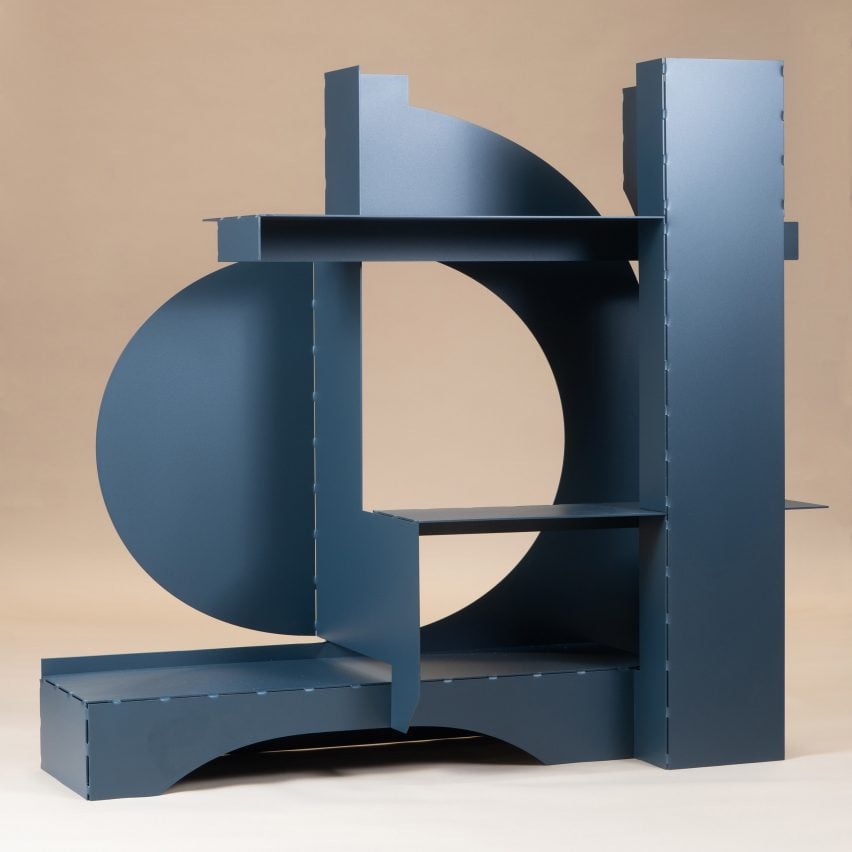
Metal origami
Inklings of the metal origami trend already reared their head at Dutch Design Week 2023, where French designer Pierre Salaün showed a shelving unit folded from a sheet of stainless steel.
This year, the same idea gripped the imagination of everyone from prolific Dutch designer Joost van Bleiswijk to graduate Myeonga Seo, both of whom showed furniture hand-folded from a single piece of sheet metal.
Van Bleiswijk’s One Sheet collection (above) is folded around scored lines while Seo added more intricate cuts that form decorative scalloped edges as the metal is bent into shape.
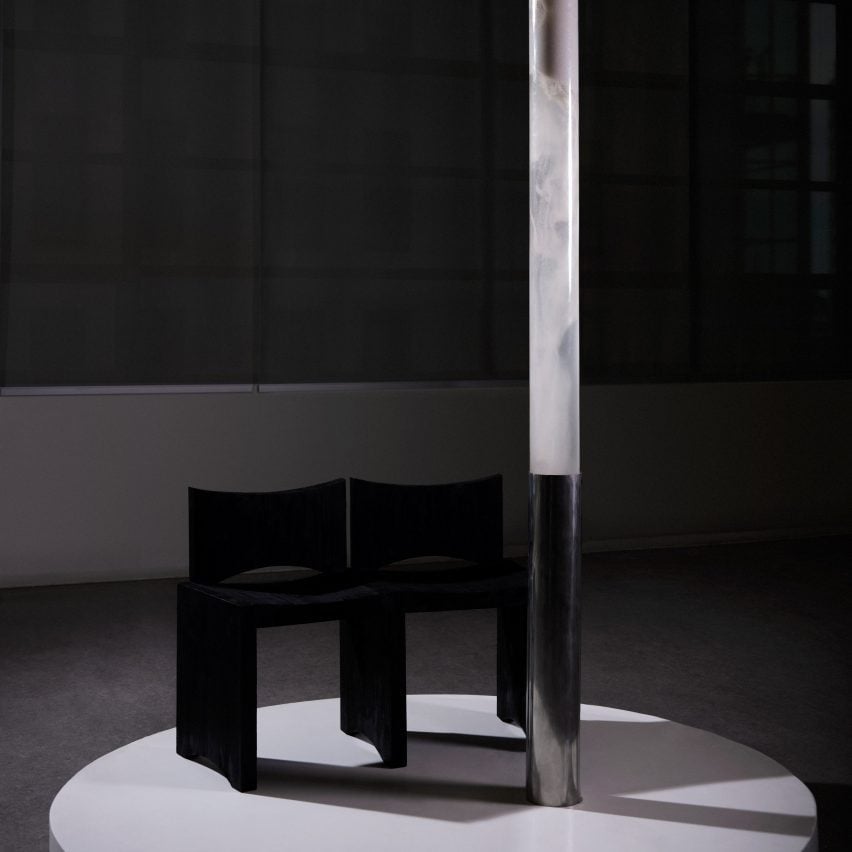
Design for death
Death was everywhere at Dutch Design Week this year. Reimagined burial garments were on show at Klokbebouw, while German design student Florian Albrecht showcased a modern minimalist interpretation of an urn.
DAE graduate Mai Rodtnes imagined a secular funeral space for the non-religious (above) and Nelly Kleijer created the DiGi-Urn to preserve the digital data of the deceased so it can be inherited by their loved ones.
Others looked at death on a larger scale, with Slovak designer Adam Morong creating a chatbot that archives digital evidence of war crimes and the non-profit Peace Seekers bringing together refugees and design graduates to create the Temple of Peace.
The top photo is by Ronald Smits.
Dutch Design Week 2024 takes place in Eindhoven from 19 to 27 October. See Dezeen Events Guide for an up-to-date list of architecture and design events taking place around the world.

